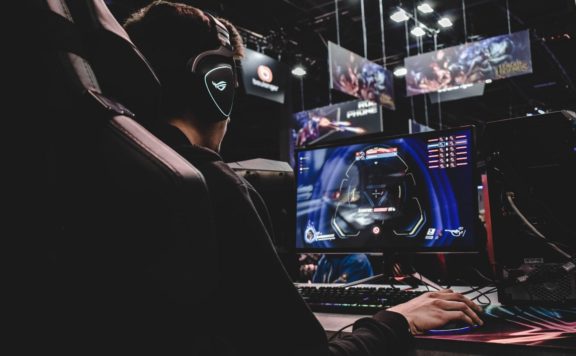In our fast-paced world, finding an escape has become essential for maintaining our mental well-being. For many, that escape comes in video games—a realm where pixels and polygons converge to create immersive experiences. While gaming provides entertainment and a break from reality, its impact on mental health is a topic that sparks debates and discussions. Let’s dive into the intricate relationship between video games and mental health.
The Escape Hatch: Stress Relief or Escapism?
Picture this: a long day at work, looming deadlines, and everyday life pressures weighing you down. What’s your go-to method for unwinding? For a growing number of individuals, it’s the captivating world of video games. Whether it’s exploring fantastical realms, battling fierce foes, or building intricate virtual cities, gaming offers an avenue to disconnect from the stressors of reality.
On the surface, this escape seems like a healthy coping mechanism. After all, who wouldn’t want to trade a chaotic day for the serene landscapes of Skyrim or the futuristic landscapes of Mass Effect? However, moderation is key. Excessive gaming as a means of escapism can potentially lead to neglecting real-world responsibilities and exacerbate existing mental health issues.
The Good, the Bad, and the Controller: Positive Effects of Gaming
Contrary to the stigma surrounding video games, research suggests that gaming can positively affect mental health. Engaging in certain types of games has been linked to improved cognitive functions, enhanced problem-solving skills, and increased social interactions, especially in multiplayer environments.
Moreover, gaming can serve as a form of social connection. In an era where physical distance often separates us, online gaming platforms allow individuals to forge friendships, collaborate on challenges, and create a sense of community. This virtual camaraderie can be a powerful antidote to isolation and loneliness.
The Dark Side of the Screen: Potential Risks and Concerns
While the positive aspects of gaming are evident, it’s crucial to acknowledge the potential risks and concerns associated with excessive gameplay. The seductive allure of virtual worlds can lead to addiction, adversely affecting sleep patterns, physical health, and overall daily functioning.
Additionally, the immersive nature of certain games, particularly those with intense graphics and narratives, may contribute to heightened levels of anxiety and stress. The constant adrenaline rush and the pressure to achieve in-game goals can mimic real-world stressors, impacting mental well-being if not managed appropriately.

Balance is Key: Finding Harmony Between Gaming and Mental Health
Like any form of entertainment, moderation is crucial in gaming. A healthy balance between virtual adventures and real-life responsibilities is essential for overall well-being. Consider setting limits on your gaming sessions, incorporating physical activities into your routine, and taking breaks to prevent eye strain and mental fatigue.
A few students who claim to be smart argue that they manage to balance the two in a nice way when it comes to submitting their school assignments by hiring a professional company such as CustomWritings, a paper writing service that can provide invaluable assistance.
Furthermore, be mindful of the content of the games you choose. Opt for titles that align with your preferences and sensitivities, avoiding those that may trigger or exacerbate stress or anxiety. Remember that the goal is to enjoy gaming as a positive outlet without compromising your mental health.
Gaming and Self-awareness: Understanding Your Triggers
Each individual’s mental health journey is unique, and what works for one may not work for another. Being self-aware and recognizing how gaming impacts your mood, stress levels, and overall mental well-being is crucial. If you find that excessive gaming is negatively affecting your life, consider seeking support from friends, family, or mental health professionals.
Taking breaks, engaging in other hobbies, and maintaining open communication about gaming habits can contribute to a healthier relationship with this form of entertainment. Recognize the signs of potential addiction or distress and take proactive steps to address them, just as you would with any other aspect of your life.
Conclusion: Press Start with Caution
In the grand tapestry of life, video games can be a vibrant thread, adding color and excitement. However, like any form of entertainment, they come with their own considerations. By approaching gaming with mindfulness, setting boundaries, and staying attuned to your mental well-being, you can press start on an adventure that enhances, rather than detracts from, your overall happiness. So, equip yourself with self-awareness, pick up that controller, and embark on virtual journeys with a keen eye on the real-world balance that keeps your mental health in check.
M. Suleman is an SEO Content Writer who’s been writing content for over a decade. He’s written multiple blogs, and hundreds of product descriptions and proofread others’ content a lot. Besides writing, he is an expert in translating English to Urdu content and vice-versa. TransTarjuma, a Youtube channel, is an eloquent testimony to his translation skill.







